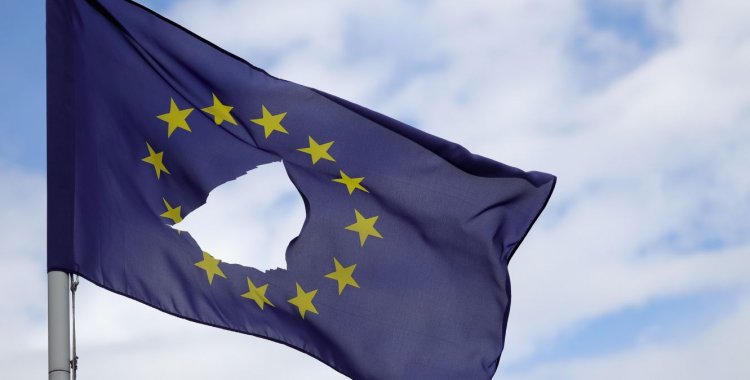*Updated 2020
The British people’s decision to leave the European Union in 2016 raised the question of whether the continent’s nations would be better off separate or together. The controversial and drawn-out process of Brexit culminated in Britain’s formal exit from the European Union in January 2020. Ever since, the UK and EU have remained in a transition period, which is set to end on December 31, 2020, though significant differences remain to be solved regarding post-Brexit trade ties. Given that in 2019, other European countries saw a rise in far-right nationalist parties, which continues to grow. This begs the question as to whether Europe is better divided or united.
Here are three perspectives on why Brexit and a divided Europe are beneficial, and why EU countries should remain united.
The EU Should Separate
The single currency hurts smaller economies
Moving from a strong Deutsche Mark to a weaker Euro significantly benefited Germany’s export industry, as its products became cheaper to acquire internationally. (In fact, the country was the world’s third largest exporter in 2019.) On the other end of the spectrum, Greece adopted a stronger currency, which made their products more expensive on the international market; the country was later held back during its 2015 debt crisis by being unable to devalue said currency, which would have raised much-needed money by increasing exports. Spain faced the same issues when it went through a depression in 2012.
The EU’s policies ignore high unemployment in less rich countries
When EU leaders met in Brussels in 2018 to work out a refugee policy for Europe, they may not have had poorer countries’ interests in mind. In 2019, Italy’s and Spain’s unemployment rates were around 9% and almost 14%, respectively. How would these countries be able to accommodate an influx of refugees during times of poor economic conditions? The newcomers require jobs to complete their integration, and it would be paradoxical for countries to commit to finding occupations for foreigners while their own citizens go jobless. As immigrants and unemployment affect each European country differently, not to mention France’s problem of immigrant-related terrorism, it seems unproductive for EU leaders to think a one-size-fits-all policy would work.
Countries want to decide their own policies
A country has a right and a duty to govern itself, whether you agree or disagree with its choices. For example, in 2016, Hungarian Prime Minister Viktor Orban put up fences to prevent refugees from entering his country. In a Hungarian referendum that same year, 98% voted against accepting the EU’s quota on how many refugees the country should accept. Poland also swayed far-right and prevented refugees from coming in. In 2016, Jaroslaw Kaczynski, the leader of Poland’s ruling Law and Justice Party, said that the country wouldn’t accept refugees “because there is no mechanism that would ensure safety.” That fear-driven anti-immigrant sentiment is still upheld today. European countries point at terror attacks committed in Germany, France and Austria by refugees as examples of a failed attempt at multiculturalism. If a conservative policy on refugees is the will of the people, that decision should be respected.

Getty Images News
EU Countries Are Better Together
Acting in unison can make foreign policy much more effective
With conflicts in Ukraine, Georgia and Crimea in recent years, the EU’s Eastern members are getting increasingly nervous. President Trump changed America’s relationship with Europe, especially all things NATO, leaving Europeans to realize that they may need to fend for themselves. Working as a block that tackles decisions together is far more imposing to outsiders than several states with varying policies and values. Yet, Britain has already lost influence in global security operations as a result of its post-Brexit separation from the EU’s CSDP (Common Security and Defense Policy). When geopolitical crises arise, coming up with a general course of action that all members back is the best way of tackling such problems head on. This can only be achieved if each European member stands in unison with one another.
Better trade deals can be negotiated from within the EU
For any European nation, negotiating trade deals with other countries is much more advantageous as part of the EU rather than as an independent economy. As one of the world’s biggest economic unions, the EU has a lot more leverage when brokering a deal with China or India. Being able to offer (or withhold) access to its many consumers is a strong bargaining tool. Additionally, there is free trading between members of the EU, as it is a customs union. Individual countries, while able to create their own terms, are unlikely to reach deals as beneficial as the EU does on its own.
Leaving the EU might come with several drawbacks
In the case of Britain, around 43% of all its exports went to EU members in 2019. Unless a replacement deal is agreed upon, leaving could result in British goods being subject to tariffs. Thanks to a Brexit-driven crime surge, British corporations have traded in corrupt markets outside of the EU. Meanwhile, several US banks and many companies had decided to move jobs out of London and into the EU. In early 2017, the Pound fell to a 10-week low in part due to these reasons, and, although it bounced back against the dollar, it remains to be seen what will happen post-Brexit, especially compared to the euro. While many have theorized about where post-Brexit will lead the country, persistent uncertainties (including with regard to the pandemic) of Brexit’s impact on the UK – both economically and diplomatically – is worrisome at best.
The Bottom Line: The EU was created to put an end to centuries of war between its members, a goal that it has achieved. However, projects like the Euro and policies for tackling the refugee crisis appear to be more detrimental to some countries than others. Do you think the world is better off with a united EU or a divided one?









